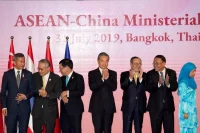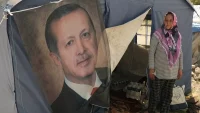
Putin is in it to win it in Ukraine. Are we?
In a recent interview with Russian state TV, Vladimir Putin said something that was, in his words, “important for us ourselves, and even more so for our listeners and viewers abroad, to understand our way of thinking”. The war in Ukraine, the Russian president explained, is for the West a way of improving its tactical position vis-à-vis Russia. “But for us it is our fate, it is a matter of life and death”, he said. The fundamental mistake in Western strategy against Russia has been to ignore this reality.
New data confirms that the Russian economy has withstood Western sanctions far better than most predicted.… Seguir leyendo »


















